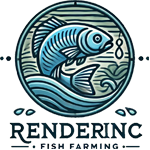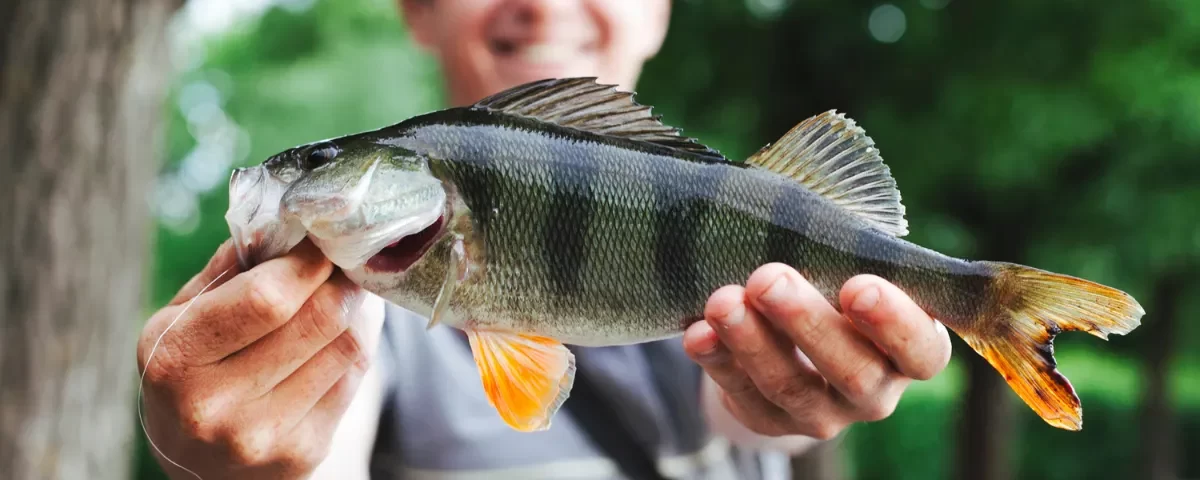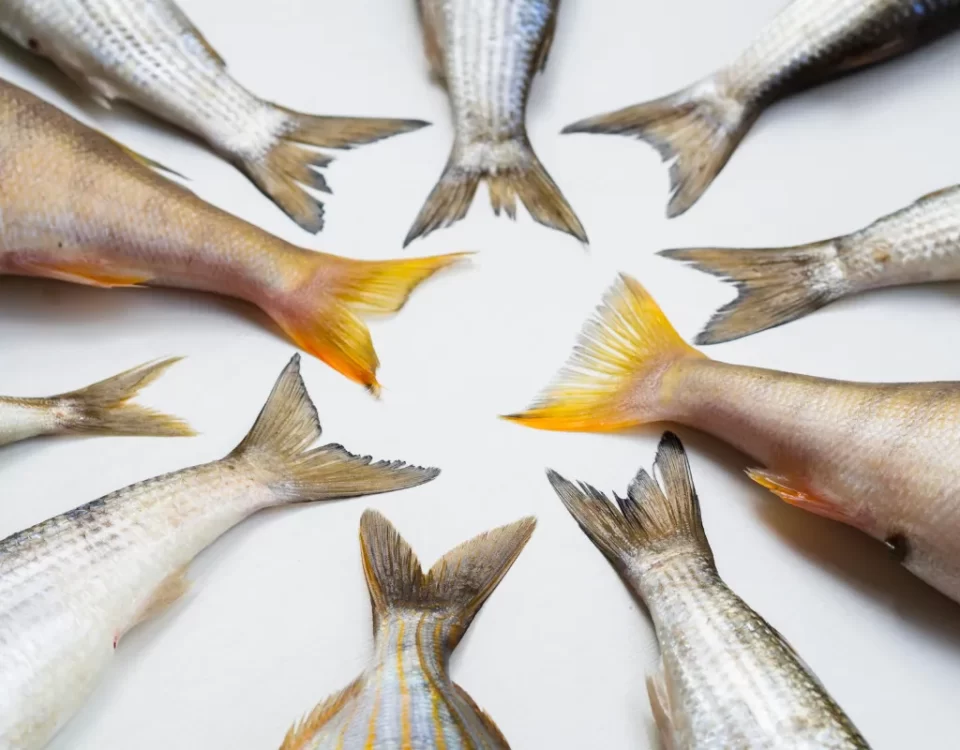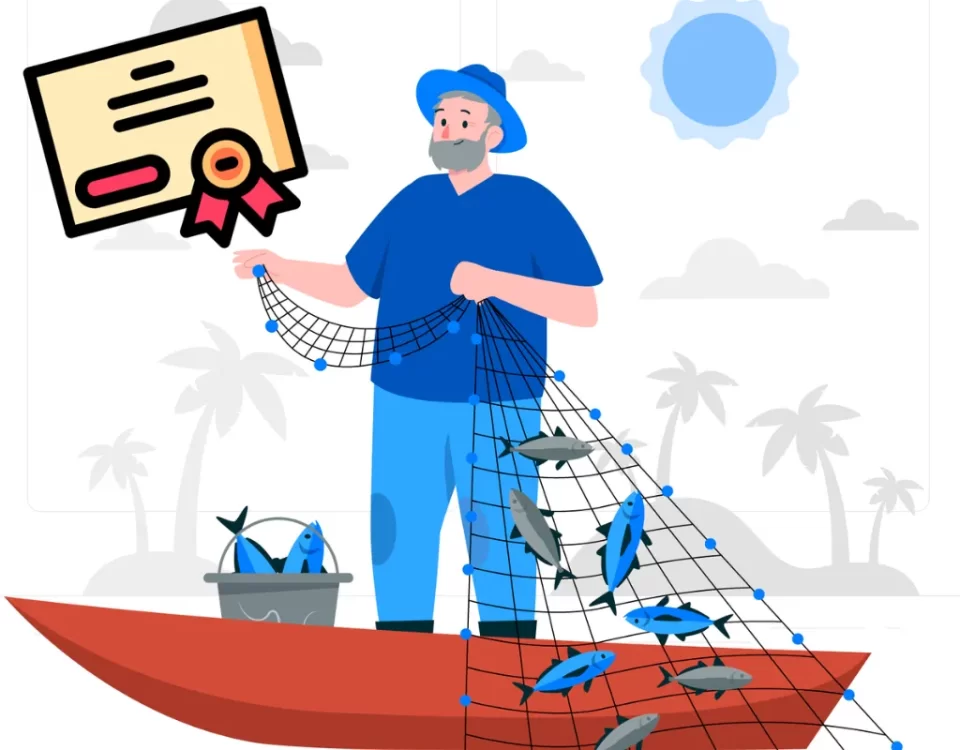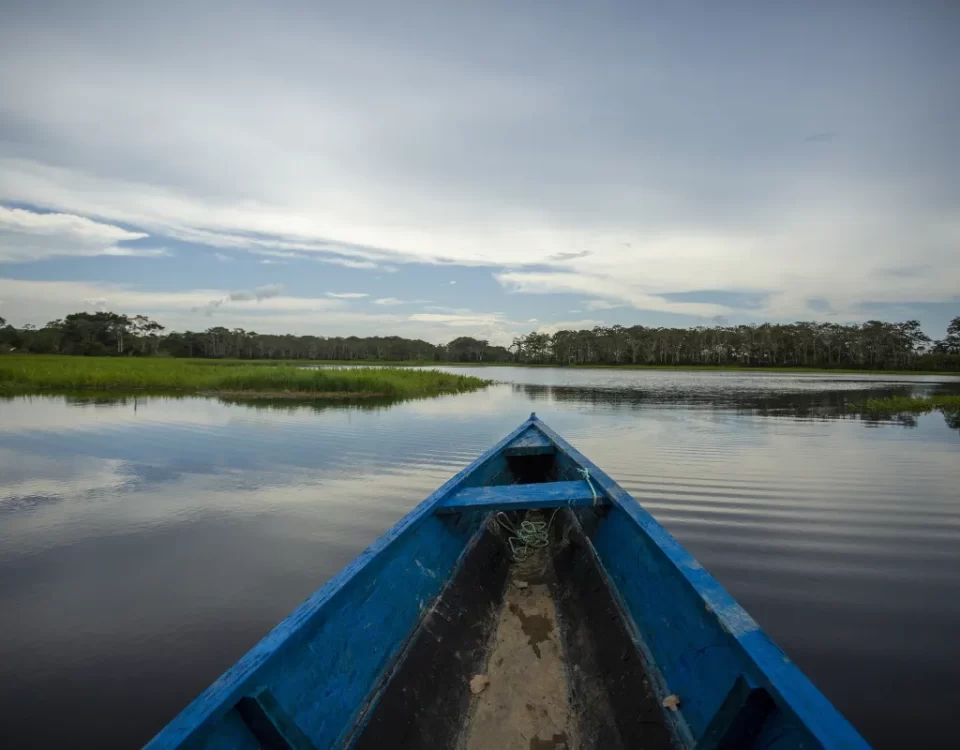Best Practices for Organic Fish Farming

The Role of Fish Farming in Global Food Security
agosto 26, 2024
The Future of Aquaponics: Integrating Fish Farming with Plant Cultivation
agosto 28, 2024Understanding Organic Fish Farming
Organic fish farming is a sustainable method of cultivating fish that adheres to strict regulations and practices aimed at preserving the health of the fish, the environment, and consumers. The principles of organic fish farming revolve around the use of natural and environmentally friendly practices to rear fish without the use of synthetic chemicals, antibiotics, or genetically modified organisms. It emphasizes the well-being of the fish and protecting the aquatic ecosystem in which they are raised.
Principles of Organic Fish Farming
Organic fish farming prioritizes the health and welfare of the fish. This includes providing them with proper nutrition, adequate living space, and clean, well-oxygenated water. The practice also focuses on minimizing environmental impact, such as preventing water pollution and preserving biodiversity in aquatic systems. Organic fish farmers avoid the use of chemical pesticides, synthetic fertilizers, and antibiotics in their production process.
Benefits of Organic Fish Farming
Organic fish farming offers numerous benefits for both consumers and the environment. For consumers, organic fish products are free from harmful chemicals and contaminants, ensuring a higher quality and safer food option. Organic fish are often believed to be more nutritious due to their natural diet and healthier environment. From an environmental perspective, organic fish farming helps preserve water quality, maintain ecological balance, and reduce the overall carbon footprint of fish production.
Certification Process for Organic Fish Products
To ensure that fish products meet the organic standards, they must undergo a rigorous certification process. Certification bodies evaluate the entire production chain, from feed sourcing to waste management, to ensure compliance with organic regulations. Organic fish farms must keep detailed records of their practices and undergo regular inspections to maintain their certification. Consumers can look for certification labels such as “USDA Organic” or “EU Organic” to identify authentic organic fish products in the market.
By understanding the principles of organic fish farming, recognizing its benefits, and knowing the certification process for organic fish products, consumers can make informed choices that promote sustainable and eco-friendly practices in the fish farming industry.
Site Selection and Water Quality Management
Selecting the appropriate site for an organic fish farm is crucial to ensuring the success and sustainability of the operation. Location plays a pivotal role in determining the water quality, accessibility to resources, and overall viability of the fish farm. When choosing a site, factors such as proximity to a clean water source, suitable topography, and availability of infrastructure for waste management must be carefully considered. Additionally, assessing environmental risks, such as potential pollution sources and natural disasters, is essential to mitigate any adverse impacts on the fish farm.
In organic fish farming, water quality management is fundamental to maintaining a healthy and thriving aquatic environment for the fish. Monitoring and controlling parameters such as dissolved oxygen levels, pH, temperature, ammonia, and nitrites are crucial for ensuring optimal conditions for fish growth and well-being. Implementing sustainable practices, such as biofiltration systems, to regulate water quality can help reduce the risk of disease outbreaks and improve overall fish health.
Considerations for Water Quality Management
When it comes to managing water quality in organic fish farming, it is imperative to consider the interconnectedness of various factors that influence the aquatic ecosystem. Nutrient cycling, microbial activity, and oxygenation all play a role in maintaining a balanced and stable environment for the fish. Implementing natural methods of water treatment, such as aquatic plants and beneficial bacteria, can help improve water quality without the need for chemical interventions.
Best Practices for Maintaining Optimal Water Conditions
To ensure the health and growth of fish in an organic farming system, it is essential to adhere to best practices for water quality management. Conducting regular water quality tests, periodically monitoring key parameters, and promptly addressing any deviations are crucial steps in maintaining optimal conditions. Proper stocking densities, regular water exchanges, and adequate aeration are essential practices to prevent overcrowding, oxygen depletion, and buildup of harmful substances in the water.
In conclusion, site selection and water quality management are integral components of successful organic fish farming practices. By choosing a suitable site, implementing effective water quality management strategies, and following best practices for maintaining optimal water conditions, fish farmers can support sustainable aquaculture operations while prioritizing the health and well-being of their fish stock.
Sustainable Feeding Practices
In the realm of organic fish farming, the practice of using sustainable and organic feeds holds paramount importance. By opting for feeds that are produced following ethical and environmentally friendly methods, fish farmers can contribute to the preservation of aquatic ecosystems while also ensuring high-quality produce. Sustainable feeds not only benefit the fish but also play a crucial role in maintaining the balance of the entire farming system.
When it comes to formulating fish feed, the source of ingredients is vital. The significance of natural and ethically sourced components cannot be overstated. Opting for ingredients that are free from synthetic chemicals, GMOs, and harmful additives ensures the purity and nutritional value of the feed. By choosing organic feeds, fish farmers can uphold the integrity of their farming practices and offer consumers a product that aligns with their values of sustainability and health.
Alternative feed options are gaining traction in the realm of organic fish farming due to their potential benefits. Insect-based feeds, for example, have shown promise as a sustainable source of protein for fish. Insects require fewer resources and space compared to traditional feed sources, making them a more eco-friendly choice. Additionally, plant-based diets have emerged as a viable alternative, offering a way to reduce reliance on marine resources while providing essential nutrients for fish growth. By exploring these alternative feed options, fish farmers can diversify their practices and contribute to the sustainability of the aquaculture industry.
In conclusion, sustainable feeding practices are at the core of organic fish farming. By embracing ethical sourcing, natural ingredients, and innovative alternatives, fish farmers can uphold the principles of organic agriculture while promoting environmental stewardship. Investing in sustainable feeds not only benefits the fish and the farm but also paves the way for a more sustainable future for the aquaculture industry as a whole.
Disease Prevention and Health Management
In the realm of organic fish farming, disease prevention and health management are paramount to ensuring the well-being of the aquatic livestock. Common diseases prevalent in fish farming include bacterial infections, parasites, and fungal outbreaks. These issues can not only harm the fish but also impact the overall sustainability and productivity of the farm. Hence, employing effective strategies to tackle these health challenges is crucial.
Common Diseases in Fish Farming
Bacterial infections like Aeromonas and Pseudomonas can wreak havoc in fish farms, leading to significant losses if not addressed promptly. Parasitic infections such as Ichthyophthirius (Ich) and gill flukes are also prevalent concerns. Additionally, fungal outbreaks, especially in stressful environmental conditions, can compromise the immune system of fish, making them susceptible to diseases.
Organic Methods for Disease Prevention
Organic fish farming emphasizes natural and sustainable practices to maintain fish health. To combat diseases, farmers often rely on preventive measures such as maintaining optimal water quality, regular monitoring for early signs of illness, and practicing proper nutrition. Biosecurity protocols, including restricting the entry of pathogens into the farm, play a crucial role in preventing disease outbreaks.
Probiotics and Natural Remedies
Probiotics, beneficial microorganisms that promote a healthy gut microbiome in fish, are favored in organic fish farming for disease prevention. By enhancing the immune response and nutrient absorption in fish, probiotics serve as a natural line of defense against pathogens. Furthermore, the use of natural remedies such as herbal extracts, essential oils, and plant-based additives can bolster fish health without the need for synthetic chemicals, aligning with the principles of organic farming.
Integration of Health Management Strategies
Integrating a holistic approach to health management in organic fish farming involves a combination of disease prevention methods. By promoting a balanced ecosystem within the farm, enhancing fish immunity through probiotics, and leveraging natural remedies, farmers can uphold the health and well-being of their aquatic stock while adhering to organic principles. This meticulous attention to disease prevention and health management not only fosters sustainable fish farming practices but also fosters a harmonious relationship between aquaculture and the surrounding environment.
Habitat Enhancement and Biodiversity Conservation
In the realm of organic fish farming, habitat enhancement plays a pivotal role in promoting the health and well-being of aquatic organisms. By creating a conducive environment that mimics natural ecosystems, fish farmers can foster a sustainable and harmonious relationship between their fish stocks and the surrounding habitat. Habitat enhancement goes beyond simply providing a space for fish to thrive; it involves recreating diverse ecosystems that support a variety of aquatic life forms.
Role of Habitat Enhancement in Organic Fish Farming
Habitat enhancement in organic fish farming involves the deliberate design and management of aquatic environments to optimize conditions for fish growth and health. This practice aims to create a balanced ecosystem that supports natural behaviors and biological processes. By enhancing the habitat, fish farmers can minimize stress levels among fish, reduce disease outbreaks, and improve overall productivity. Additionally, a well-designed habitat can enhance water quality, nutrient cycling, and oxygen levels, creating a sustainable environment for fish to flourish.
Promoting Biodiversity and Ecosystem Health
One of the key goals of habitat enhancement in organic fish farming is to promote biodiversity and ecosystem health within fish farms. By incorporating a variety of structural features such as submerged vegetation, woody debris, and rocky substrates, fish farmers can create microhabitats that support a diverse array of species. This not only enriches the ecological balance within the farm but also helps prevent the dominance of a single species, thus reducing the risk of imbalances and disease outbreaks. Promoting biodiversity in fish farms contributes to the resilience of the ecosystem and enhances its capacity to adapt to environmental changes.
Benefits of Creating a Sustainable Habitat for Fish
Creating a sustainable and natural habitat for fish in organic fish farming systems offers a multitude of benefits. Firstly, a well-designed habitat can contribute to the overall health and welfare of fish by providing shelter, hiding spots, and spawning grounds. This can lead to improved growth rates, reduced stress, and enhanced reproductive success among fish populations. Furthermore, a biodiverse habitat helps maintain water quality by promoting natural filtration processes and nutrient recycling. By fostering a healthy ecosystem, fish farmers can minimize the need for chemical inputs and antibiotics, thereby promoting a more sustainable and environmentally friendly approach to fish farming.
Waste Management and Sustainability
Sustainable waste management plays a crucial role in organic fish farming, ensuring the environmental footprint is minimized while maximizing resource efficiency. In the realm of aquaculture, where waste production is inherent, employing effective waste management practices is imperative to maintain the ecosystem’s balance and the farm’s long-term viability.
Minimizing Waste Production
In organic fish farming, waste primarily comprises uneaten feed, fish excreta, and other organic matter. To reduce waste production, proper feeding practices are essential. Feed formulation should be precise to ensure that fish consume what they need, minimizing leftover feed. Additionally, feeding schedules should align with fish requirements, preventing overfeeding that leads to excess waste production. By closely monitoring feed intake and adjusting feeding regimes accordingly, farmers can significantly reduce waste generation.
Resource Efficiency
An integral aspect of sustainable waste management in organic fish farming is maximizing resource efficiency. Implementing integrated aquaculture systems, such as aquaponics, where fish farming is combined with hydroponic plant cultivation, can enhance resource utilization. In these systems, fish waste serves as a nutrient source for plants, creating a symbiotic relationship that optimizes resource utilization and minimizes waste. By harnessing the natural processes within the ecosystem, farmers can achieve greater efficiency in resource utilization and waste reduction.
Responsible Waste Disposal
Disposing of waste responsibly is paramount in organic fish farming to mitigate environmental impact. Implementing practices such as waste segregation, where solid and liquid wastes are separated, allows for targeted disposal methods. Solid waste, such as uneaten feed and excreta, can be utilized as fertilizers in agriculture or converted into biogas through anaerobic digestion. Liquid waste, on the other hand, can undergo treatment processes like biofiltration to remove contaminants before discharge. By adopting responsible waste disposal practices, farmers can minimize pollution and preserve water quality in surrounding ecosystems.
Sustainable Practices Implementation
To uphold sustainability in organic fish farming, it is essential to integrate waste management practices into the farm’s overall operations. Regular monitoring of water quality parameters, such as ammonia levels and oxygen concentration, can help detect potential waste accumulation and inform adjustments to feeding and maintenance practices. Employing natural biological processes, like microbial decomposition and nutrient cycling, can further aid in waste breakdown and utilization. By embracing a holistic approach to waste management, organic fish farmers can uphold sustainable practices that benefit both the environment and farm productivity.
Case Studies and Success Stories
In the realm of organic fish farming, there are several inspiring success stories that serve as beacons of sustainability and innovation in aquaculture. One such case is the Ocean Hugger Foods project, which focuses on producing organic, plant-based alternatives to popular seafood choices like tuna. By utilizing cutting-edge technologies and sustainable practices, Ocean Hugger Foods has managed to carve a niche in the market while promoting environmental conservation.
Innovative Practices and Technologies
In the pursuit of organic aquaculture, AquaBounty Technologies has emerged as a frontrunner with their genetically modified salmon. This innovative approach aims to reduce the environmental impact of traditional fish farming by enhancing growth rates and efficiency. Despite initial skepticism, AquaBounty’s success demonstrates the potential of technological advancements in creating a more sustainable future for aquaculture.
Impact on Local Communities and the Environment
The establishment of organic fish farming operations can profoundly impact local communities and the environment. In the case of Fishin’ Company, a sustainable fish farming enterprise in Vietnam, the adoption of organic practices has not only elevated the quality of their products but also uplifted the livelihoods of local fishermen. By prioritizing environmental stewardship and community welfare, Fishin’ Company has set a precedent for holistic and responsible aquaculture.
Conclusion
In conclusion, these case studies and success stories underscore the vital importance of embracing sustainable and environmentally friendly methods in organic fish farming. By learning from these examples, individuals in the aquaculture industry can glean valuable insights into best practices that prioritize both the well-being of the ecosystem and the local community. Let us strive to emulate these success stories and champion the cause of organic fish farming in our own endeavors, paving the way for a more harmonious coexistence between aquaculture and nature.

Michael Rivers is an experienced aquaculture enthusiast with over a decade of hands-on knowledge in fish farming and sustainable aquatic systems. Passionate about promoting eco-friendly practices, he shares his expertise on fish breeding, water management, and the latest advancements in aquaculture technology. Through his blog, Michael aims to help both beginners and seasoned fish farmers achieve success in their ventures while contributing to the growth of sustainable food production.
